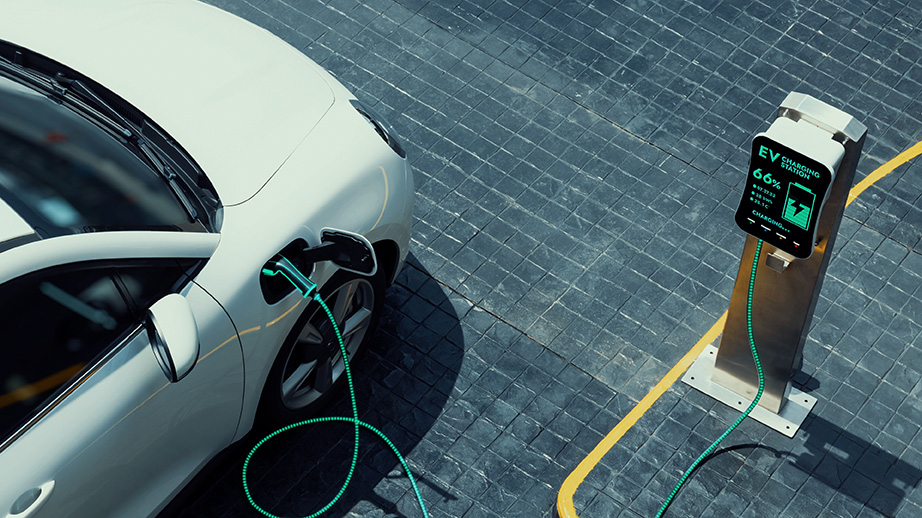If you drive an electric vehicle (EV) or are considering making the switch, there are some important tax and charge changes you need to know about for 2025. From higher road tax (Vehicle Excise Duty or VED) to new congestion charges in London, here’s what’s coming and how it could affect you.
What’s Changing for EV Owners in 2025?
From April 2025, EV drivers in the UK will need to pay road tax for the first time, and starting 25 December 2025, London’s congestion charge discount for EVs will be scrapped.
How to Get Tax Free for an Extra Year
If your EV was first registered on or after April 1, 2017, you can extend your tax-free period by renewing your EV tax before 31 March 2025. By doing this, you’ll delay your first road tax payment until March 2026, giving you an extra year of tax-free driving. Even if your current tax hasn’t expired, you can still re-tax your EV using your registration number and the reference from your V5C logbook. When prompted on the government website, simply confirm to proceed and lock in your savings.
Taking advantage of this loophole can save you up to £195 and help you avoid the upcoming EV tax increase. Timing is key, as renewing in March 2025 ensures you remain in the more affordable Band A tax group for another year. With tax changes looming and the new 25 plate arriving in March, this is a smart opportunity to cut costs and maximise your EV benefits.
Let’s break it down:
Tax Increases
Currently, EV owners benefit from no road tax. But from April 2025, that’s set to change:
- New EVs registered after 1 April 2025:
- First-year rate: £10
- Standard rate (from the second year): £195
- First-year rate: £10
- EVs registered between 1 April 2017 and 31 March 2025:
- Will pay the standard rate of £195 annually.
- Will pay the standard rate of £195 annually.
- Older EVs (registered between 1 March 2001 and 31 March 2017):
- Will move from a tax-free status to Band B, costing £20 per year.
- Will move from a tax-free status to Band B, costing £20 per year.
- Vehicles priced over £40,000:
- Subject to the Expensive Car Supplement, adding £410 annually for five years, bringing the total to up to £605 per year.
BIK Rates Are Increasing
From April 2025, Benefit in Kind (BIK) rates will increase by 1% per year in every tax bracket. Here’s what to expect:
- Rates will range from 21% to 37%, with higher-emission vehicles having higher BIK rates.
- Electric vehicles currently have a low BIK rate of 2%, but this will increase by 1% annually until 2028.
- Businesses offering company cars as part of a salary sacrifice scheme or benefit will see employees paying more tax from the new financial year.
From 2026, changes to how BIK tax is reported and paid will also take effect. Income tax and Class 1A National Insurance contributions on most BIKs will need to be paid in real time through PAYE.
Hybrid and Alternatively Fuelled Vehicles (AFVs)
The £10 annual discount for hybrid and AFVs will be removed from April 2025. The rate you pay will depend on your vehicle’s registration date:
- Registered before 1 April 2017:
- Tax will depend on the vehicle’s CO2 emissions. Check the current rates for more details.
- Tax will depend on the vehicle’s CO2 emissions. Check the current rates for more details.
- Registered on or after 1 April 2017:
- You’ll pay the standard rate of £195.
Congestion Charges for EVs
Since October 2021, EV drivers in London have enjoyed a discounted congestion charge of just £10 per year. However, from 25 December 2025, EVs will need to pay the full £15 daily congestion charge, just like petrol and diesel vehicles.
This will affect up to 100,000 EV owners driving in areas such as Westminster, Holborn, and the City of London. TfL (Transport for London) says this change is to manage traffic better in the capital.
How Will These Changes Affect You?
These new costs may increase the running expenses of EV ownership. Here are the key areas to watch:
- Increased annual costs: Depending on when your EV was registered, your road tax could range from £20 to £605 per year.
- Congestion charges: Regular drivers in London’s congestion zone could pay up to £45 per week if they commute daily.
- Business implications: Companies with fleets of EVs will face higher operational costs, especially those entering London’s congestion zone frequently.
FAQs About EV Tax and Congestion Charges
Why are EV drivers now paying road tax?
The government wants to make the tax system fairer, ensuring all vehicles contribute to road maintenance, regardless of emissions.
When do the new road tax rates come into effect?
The changes start from 1 April 2025.
How much will EV road tax cost?
It depends on your vehicle:
- New EVs: £10 (first year), then £195 per year.
- Older EVs (2017-2025): £195 per year.
- Pre-2017 EVs: £20 per year.
What are the congestion charge prices for EVs?
From 25 December 2025, EVs will pay £15 per day to drive in London’s Congestion Charge Zone.
Are there still savings with EVs despite these charges?
Yes, EVs typically cost less to run due to lower fuel and maintenance costs. They’re also better for the environment.
Where can I find out more?
Find out more on the GOV website here.
FAQs About Fleet Service GB
Who is Fleet Service GB?
Fleet Service GB provides an integrated solution for businesses managing fleets, offering services like maintenance, compliance, and driver support.
How can Fleet Service GB help businesses with these changes?
Fleet Service GB can help businesses adapt to the new tax and congestion rules by providing tools to manage costs and advice on fleet electrification strategies.
What makes Fleet Service GB unique?
Fleet Service GB is the only fully integrated solution for fleet management, combining cutting-edge technology with expert support to deliver seamless services for businesses.
Final Thoughts
While the new tax and congestion charges may feel like a blow to EV drivers, they’re a reminder to plan ahead. Whether you’re a personal EV owner or managing a fleet, staying informed and making adjustments now can save you hassle later. If you’re a business owner, Fleet Service GB can provide the support you need to navigate these changes.
Have questions or concerns? Contact Fleet Service GB for expert advice tailored to your needs.


